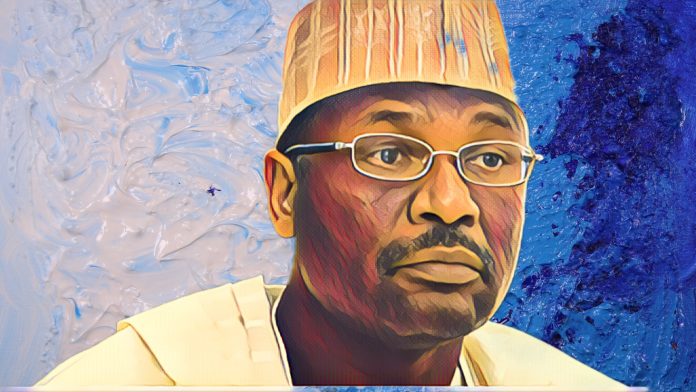KEY POINTS
- SERAP urged INEC’s chair to enforce a court judgment on electoral offenses.
- The court ordered INEC to investigate and prosecute electoral bribery cases.
- SERAP threatened contempt proceedings if INEC fails to comply within seven days.
The Socio-Economic Rights and Accountability Project (SERAP) has called on Professor Mahmood Yakubu, chairman of the Independent National Electoral Commission (INEC), to “immediately and effectively enforce the judgement ordering INEC to pursue cases of bribery against state governors, their deputies, and other electoral offenses committed during the 2023 general elections.”
The judgement was delivered on July 18, 2024, by Justice Obiora Atuegwu Egwuatu following a mandamus lawsuit filed by SERAP.
In a letter dated Sept. 28, 2024, signed by SERAP Deputy Director Kolawole Oluwadare, the organization stated:
“It is unacceptable for INEC to disregard the authority of the court, which serves as the guardian of justice in this country.”
SERAP noted that recurring instances of electoral bribery and violence undermine Nigeria’s electoral process and participatory democracy.
The group pointed to recent electoral allegations in Edo State as an indication that INEC has learnt little from the issues that marred the 2023 general elections.
The letter, in part, stated: “We would be grateful if the recommended measures are taken within seven days of receipt or publication of this letter.
If we do not hear from you by then, SERAP shall consider pursuing contempt proceedings against you and INEC for failing to comply with the court judgement.”
SERAP expressed concern that INEC’s ongoing failure to enforce the court ruling has contributed to electoral offenses in several states, including during the recent governorship election in Edo State, allowing impunity to persist for such offenses in Nigeria.
“Complying with the court judgement would protect the integrity of our electoral and legal systems,” SERAP stated.
Court order requires investigation and prosecution
Judge Egwuatu mandated that INEC designate an independent counsel to look into claims of undue influence, bribery, vote-buying, and conspiracy involving state governors and their deputies in the 2023 elections.
The court also directed INEC to look into allegations of electoral violence, find the perpetrators, and see to it that they are brought to justice.
In addition, INEC was mandated to prosecute any captured criminals who were being held by other law enforcement organisations.
According to a report by Vanguard, SERAP emphasised that INEC, under Yakubu’s direction, is breaking Section 287 of the Nigerian Constitution, which requires all authorities and individuals to abide by court decisions, by ignoring the court’s ruling.
SERAP further noted, “Suspected perpetrators of electoral offenses in the off-cycle elections in Kogi, Imo, and Bayelsa states continue to enjoy impunity.”
It issued a warning, saying that carrying out the ruling would aid in the fight against offences such as those seen in the most recent elections, which included those in Edo and many local government elections.
Compliance would restore public trust and combat impunity
According to SERAP, following the court’s decision will boost adherence to international and constitutional norms, boost public trust in Nigeria’s electoral process, and increase the legitimacy of subsequent elections.
INEC would show that it is committed to putting a stop to Nigeria’s electoral offence culture by promptly following the ruling.
According to Justice Egwuatu’s ruling (case no. FHC/ABJ/CS/583/2023), SERAP and its members have a legal stake in making sure INEC carries out its public obligations as citizens.
The ruling also recognised that electoral violence poses a serious threat to legitimate elections as well as Nigeria’s democratic and economic development.
It further emphasised that certain electoral offences and the processes for prosecuting them are outlined in a number of provisions of the Electoral Act 2022, including sections 123, 124, 125, 126, 127, 128, and 129. Legal authorities designated by INEC or any other qualified attorney must handle the prosecution.
Finally, Section 24 of the Nigerian Constitution emphasises the significance of upholding decisions pertaining to electoral fairness by acknowledging that citizens have a responsibility to support law and order and positively impact their communities.



